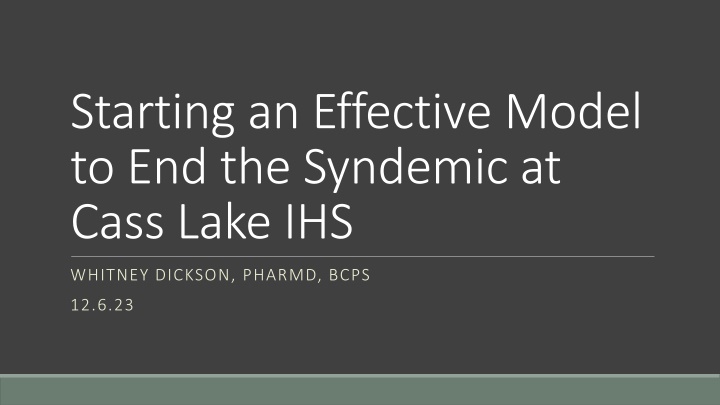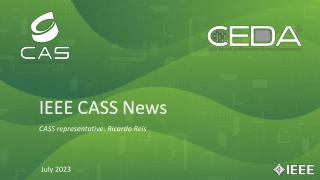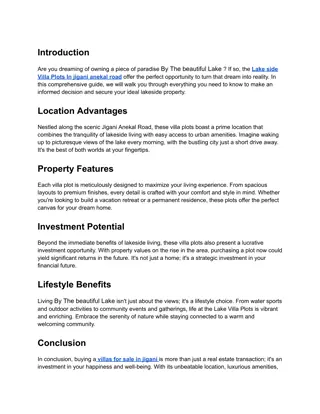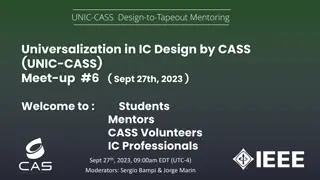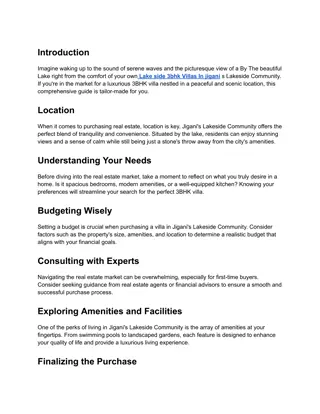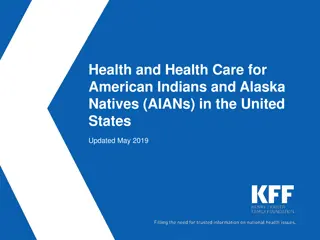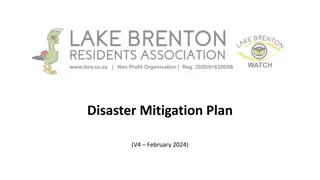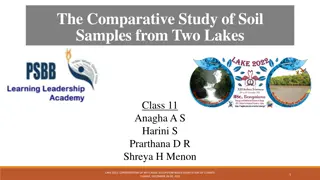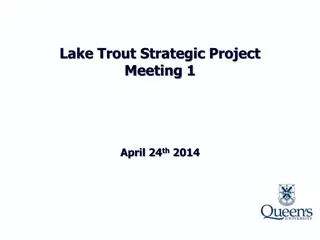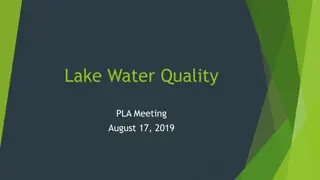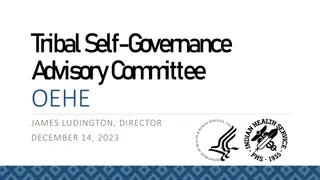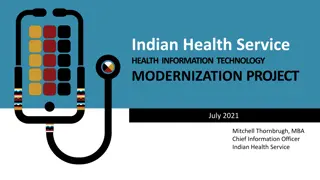Implementing a Model to Combat the Syndemic at Cass Lake IHS
This presentation outlines the initiative to address the syndemic at Cass Lake IHS, focusing on Hepatitis C and harm reduction services. It discusses the background of Hepatitis C, the challenges faced in previous treatments, and the new pharmacist-run HCV clinic model. The aim is to educate on the need for improved services and highlight the steps taken at a local level to end the syndemic effectively.
Download Presentation

Please find below an Image/Link to download the presentation.
The content on the website is provided AS IS for your information and personal use only. It may not be sold, licensed, or shared on other websites without obtaining consent from the author.If you encounter any issues during the download, it is possible that the publisher has removed the file from their server.
You are allowed to download the files provided on this website for personal or commercial use, subject to the condition that they are used lawfully. All files are the property of their respective owners.
The content on the website is provided AS IS for your information and personal use only. It may not be sold, licensed, or shared on other websites without obtaining consent from the author.
E N D
Presentation Transcript
Starting an Effective Model to End the Syndemic at Cass Lake IHS WHITNEY DICKSON, PHARMD, BCPS 12.6.23
Learning Objectives Understand the need for hepatitis c and harm reduction services Summarize the steps taken to end the syndemic at a local level
About Cass Lake IHS Located in Northern Minnesota Outpatient Ambulatory Care Clinic 3 physicians 6 nurse practitioners Active user population of ~12,000 clients Pharmacy also serves 4 area tribal clinics Services provided 24/7 emergency department Same Day Clinic Dental Pharmacy Lab Radiology Physical Therapy Podiatry Cass Lake, MN
Hepatitis C Background More people dying of HCV than all other 60 nationally notifiable infectious diseases combined Minnesota is one of the states that had >200% increase in HCV cases from 2007-2012 Today over 80% of new HCV transmission occurs in people who inject drugs AI/AN are the most affected compared to other races or ethnicities
HCV in Minnesota MN Department of Health
Previous HCV Treatment Process Referred to outside specialist Typically Bemidji, Duluth, Fargo (range from 30 min-2.5 hours away) No further screening/testing done here after Ab/RNA positive Often patients referred with only Ab + (Not detectable RNA) Patients screened positive and lost to follow up Unclear what percentage of patients received care/completed treatment Paid for by patient s insurance or purchased referred care Restrictions on substance use prior to treatment No medications filled at our pharmacy
Pharmacist Run HCV Clinic Patient with + HCV antibody and HCV RNA detectable Referral to pharmacist Initial pharmacy visit Assess readiness/appropriateness for treatment If ready/willing to be treated order required labs Presentation to project ECHO if needed Initiate prior authorization or Patient Assistance Start treatment Pharmacist monitoring/follow up throughout treatment and SVR SVR Counseling Risk of reinfection Necessary follow up (ex. Cirrhotic patients still require ultrasounds and monitoring for HCC)
Pharmacist Collaborative Practice Agreement 1 pharmacist Collaborative Practice Agreement in place Allows for treatment based on most recent guidelines Flexibility for appointments Can schedule appointments Walk-in Collaborate with local treatment programs
Risk Factors for Hepatitis C at Cass Lake IHS All Patients Last 50 Patients 11.5% 6% 4% 10.5% 78% 90% IVDU Other Unkown IVDU Other Unknown
Need for Local Harm Reduction Services
Need for Syringe Services MN Pharmacy Syringe Access Pharmacies can voluntarily participate Individual pharmacist may decide Limit of 10 syringes Can not display syringes for purchase Can not advertise availability of syringes SEP Locations : NASEN Directory- north American syringe exchange network https://www.nasen.org/map/ https://www.health.state.mn.us/
Need for Syringe Services ER visits for STD testing oNeed for quick and easy access to testing outside of the ER Association between our syphilis cases and IVDU Increase in ER overdose visits oNeed for additional access to naloxone Patients accessing ER for services not empaneled with primary care provider
Getting Started - People Meetings with Tribal counterparts oWhat services we can both provide oWhat gaps can we fill for each other oMeeting with Tribal Police Department Pharmacy leadership and staff buy in oSurvey staff Presentation to medical staff Word of mouth advertising One Facebook post after ~ 3 months
Getting Started- Education Gathered resources for patients Mental Health Substance use Patient education Safer injection Numbers for clinic appointments Sharps disposal in Minnesota Education for pharmacy staff (ongoing) Background presentation given Invited NPAIHB staff to present and answer questions Emailed resources on harm reduction Rationale behind items provided
Getting Started- Supplies Created list of supplies needed Compared pricing from different sources Created NASEN account Majority of items the pharmacy already offered or the facility orders for other departments Identified funding source Resources NPAIHB National Harm Reduction Coalition NASEN NASTAD
Harm Reduction at CLIHS Within CLIHS pharmacy provides harm reduction services which include Syringe services Sharps containers/syringe disposal Naloxone STI testing Condom distribution Education on safer use Resources for mental health and addiction
Harm Reduction at CLIHS Patients complete a voluntary intake form oProvided a participant card with an ID number oEncounter is not documented in medical record oNaloxone prescription and STD testing is entered in EHR, but not linked to harm reduction visit Pharmacist or student pharmacist provides information on what is available oHandouts on safer use and mental health and addiction resources oParticipant can request items they would like Return visit participants can show their participant card to request services or ask to speak with a pharmacist Pharmacy tracks visits based on ID number
Harm Reduction Supplies
Harm Reduction Through Tribal Health 2 nurses 1 RN, 1 LPN All of the same services provided at Cass Lake IHS Ability to meet people where they are at Visit 4 different communities one day each week Disease intervention services Syphilis, HCV, other STIs
Participant Demographics First participant 10/24/22 Currently have 101 participants Median age: 36 Age range: 21-68 71 participants with no primary care provider (70%) 490 visits ~23,500 syringes, 365 naloxone, and 1,200 condoms provided
What Works Well People know where to find us Consistent hours Consistent location Always a pharmacist available 10 pharmacists and typically 1-2 students Private space Same space used for all pharmacy services Lab available during harm reduction program hours Ability to test and treat for STIs/HCV within the pharmacy Same Day clinic and ER on site if needed
What Could Be Better Multiple staff might be a disadvantage How do we engage more with patients Consider adding fentanyl or xylazine test strips Input from people with lived experience Offer rapid testing Remove barriers for HCV treatment Medicaid, reimbursement limits Could offer additional supplies Offer PrEP and doxy PEP when indicated
Pharmacy STI Standing Order STI Order Set Bundle STI Treatment Syphilis Chlamydia HIV Gonorrhea HCV Syphilis CT/GC Trichomoniasis Trichomonas Pregnancy HBV (Surface Ab, Surface Ag, Core Ab) Allows any pharmacist to order STI testing and appropriate treatment
STI Testing first 7 months STD panel ordered at 8 visits (6 patients) o3 positive HCV o3 reactive RPR o1 late latent case in need of treatment o2 with history of treated syphilis 7 participants with known HCV in need of treatment 35 participants
Pharmacy Based Incentive Program Implemented July 10th 2023 $10 incentive card offered for STI testing Testing ordered under pharmacy standing order No STI testing within the last 3 months Second $10 incentive card offered for notification of results or if treatment needed Treatment ordered under pharmacy standing order No advertising done Do not have to be part of harm reduction program
Pharmacy Based Incentive Program 196 incentive cards given out 101 STI bundles completed 33 not part of harm reduction program Positive results 44 positives in 40 patients 5- syphilis cases- (4 late latent, 1 secondary) 10- Hepatitis C (+ 11 with previous positive in EHR) 4- Chlamydia 1- Gonorrhea 13- Trichomoniasis 1- Pregnancy 9 positives were outside of harm reduction program
Difficult to Reach Patients Tribal Disease Intervention Specialist Consult Utilized if unable to reach patient by phone Consult placed in EHR Can assist with getting patient into clinic, obtaining labs, or providing treatment Follow up Flag Placed and removed by one pharmacist Only used as a last resort if patient unable to be contacted after multiple attempts Education needed for staff to ensure action when patient presents Need to proactively remove flag as soon as action is taken Internal pharmacy communication Notes in harm reduction binder Notes in Scriptpro (pharmacy based dispensing system)
Other Policies/Standing Orders STI Partner Treatment Expedited Partner Therapy Treatment of non-eligible partners Naloxone standing order Allows pharmacy to order for any patient Naloxone standing order for community members or first responders Lab Express Testing Allows patient to go directly to lab to request STI testing Pharmacist follows up on results Contacts patients Orders treatment Vaccination Standing order
Opportunities for Growth Community engagement Homeless shelters Opioid Treatment Program Powwows Talk about your program Ask questions about other programs or services in your area
Key Takeaways It is ok to start small Growth provides an opportunity for education/conversation Be flexible Alternate forms of communication are needed You don t have to be an expert We are always learning
Resources Materials for Syringe Services Programs: A Guide for Staff & Volunteers | NASTAD Safer Drug Use Technique | Bevel Up (bvlup.com) National Harm Reduction TA Center NASEN | North America Syringe Exchange Network: NASEN Directory
